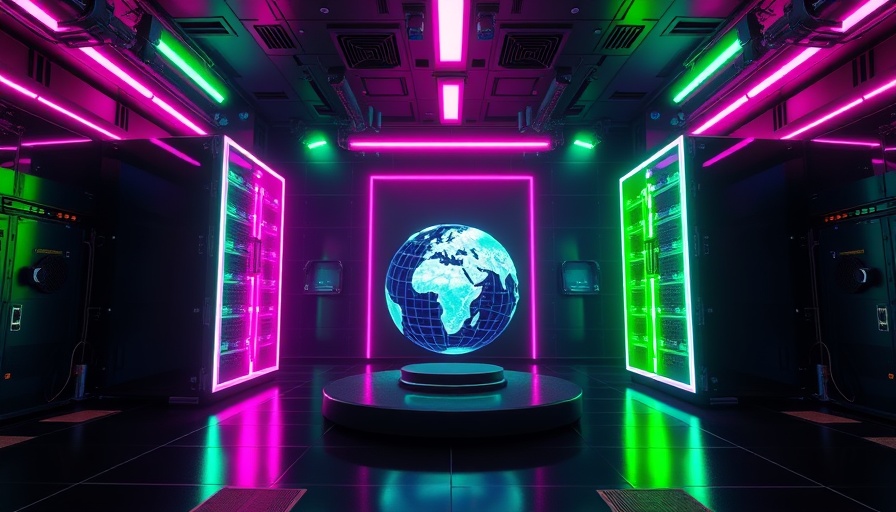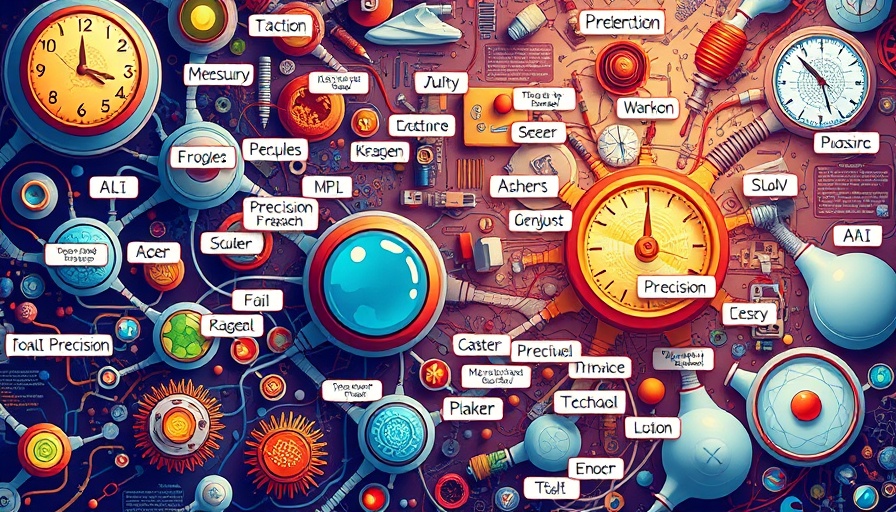
Understanding OpenAI's Temporary Shutdown
In an unexpected turn of events, OpenAI recently initiated a one-week operational shutdown, a move that has raised eyebrows across the tech and healthcare sectors alike. While the details of the shutdown are still emerging, the implications for talent dynamics and competition—particularly with major players like Meta—are profound. In an age where technology and healthcare are increasingly intertwined, how organizations attract and retain talent is pivotal.
The Impact of Talent Wars on Innovation
The rapidly escalating competition for top-tier talent in the tech industry can no longer be viewed in isolation. Firms like Meta are positioning themselves aggressively in this talent war, leveraging cutting-edge projects and appealing workplace cultures to entice valuable employees from competitors, including OpenAI. For tech companies, especially those involved in healthcare solutions, the stakes are higher than ever—innovative breakthroughs can hinge on who has the best team.
Parallel Examples: The Tech Giants’ Tug-of-War
History is replete with examples of tech giants vying for superiority. Take the infamous battle between Google and Facebook for data scientists a decade ago. The outcome saw substantial shifts in hiring practices, with businesses modifying their strategies to incorporate healthier work environments, comprehensive healthcare benefits, and flexible work arrangements. Such adaptations are particularly relevant in today's context, as OpenAI recalibrates amidst Meta's aggressive talent acquisition tactics.
Current Events: The Bifurcation of Focus in Tech
As the tech industry witnesses a bifurcation of focus—between AI advancements and social media functionality—it poses crucial questions about resource allocation and employee satisfaction. Organizations are now tasked with aligning their employee's personal and professional goals with their business missions. Accommodating processes and insights that enhance mental health, such as a balanced work-life schedule, are vital. After all, as employees feel increasingly valued, the improved morale will reflect directly on productivity and innovation.
Future Predictions: What Lies Ahead?
The future may hold new emerging trends in how organizations attract and maintain talent. With the rise of a health-conscious workforce, businesses like OpenAI and Meta may need to integrate wellness programs that focus on mental health benefits of regular exercise, creating an environment that not only stimulates professional growth but fosters employee well-being. Without it, talent retention could suffer, ultimately impacting company innovation and culture.
Actionable Insights: The Power of Employee Well-being
For organizations currently navigating this intense competition, prioritizing employee health is essential. Striking a balance between rigorous work demands and personal well-being can lead to improved job satisfaction and retention rates. Employers could consider implementing programs focusing on regular physical activity, nutritional guidance, and mental health initiatives. These programs should not only aim to boost motivation but also provide employees with tangible workout routines, healthy meal prep guidance, and stress-reduction techniques, thereby enriching their quality of life.
Conclusion: The Future of Work in Tech
As the battle for talent escalates between OpenAI and Meta, the overarching narrative is unmistakable: how companies address employee health directly correlates with their success. For business owners and executives, investing in employee well-being isn’t just the right thing to do; it is imperative for sustained innovation and competitive advantage. Companies that recognize this will lead the charge in an ever-evolving landscape. Now is the time to advocate for better health, work-life balance, and a collaborative corporate culture.
 Add Row
Add Row  Add
Add 




 Add Row
Add Row  Add
Add 

Write A Comment